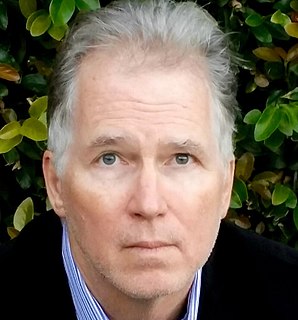A Quote by Barbara Ehrenreich
What we need is a tough new kind of feminism with no illusions. Women do not change institutions simply by assimilating into them. We need a feminism that teaches a woman to say no - not just to the date rapist or overly insistent boyfriend but, when necessary, to the military or corporate hierarchy within which she finds herself. We need a kind of feminism that aims not just to assimilate into the institutions that men have created over the centuries, but to infiltrate and subvert them.
Related Quotes
I think feminism has always been global. I think there's feminism everywhere throughout the world. I think, though, for Western feminism and for American feminism, it not so surprisingly continues to center Western feminism and American feminism. And I think the biggest hurdle American feminists have in terms of taking a more global approach is that too often when you hear American feminists talk about international feminism or women in other countries, it kind of goes along with this condescending point of view like we have to save the women of such-and-such country; we have to help them.
I get very frustrated when I hear women saying, "Oh, feminism is passé," because I think feminism means empowerment. Men can be feminists, too! Many men are feminists. We need feminism. It's not against men; it's about the empowerment of women. It's the respect of women - giving women equal rights, the same opportunities.
I had a real come-to-Jesus a couple of years ago when I started to see the direct line between feminism and everything else - feminism and climate change, feminism and poverty, feminism and hunger - and it was almost like I was born again and started walking down the street and was like, "Oh, my God, there are women everywhere! They're just everywhere you look. There's women all over the place!"
Much of the appeal of feminism is that it encourages women to do what they always felt like doing anyway: take everything personally. But to succeed at the highest level, you need some objectivity, which feminism hates. Feminists see objective reality as a conspiracy out to make them feel bad about themselves.
Something I say a lot when it comes to anti-feminist stereotypes is that they exist for a reason. The stereotypes of feminists as ugly, or man-haters, or hairy, or whatever it is - that's really strategic. That's a really smart way to keep young women away from feminism, is to kind of put out this idea that all feminists hate men, or all feminists are ugly; and that they really come from a place of fear. If feminism wasn't powerful, if feminism wasn't influential, people wouldn't spend so much time putting it down.
When I grew up, feminism wasn’t something that was really talked about. There’s a really negative stereotype about feminism in the media. That really plays badly for young women understanding the movement. Maybe people don’t want to identify themselves as feminists because of the label. But people need to understand what feminism means and educate themselves before they reject it.
People sometimes say that we will know feminism has done its job when half the CEOs are women. That’s not feminism; to quote Catharine MacKinnon, it’s liberalism applied to women. Feminism will have won not when a few women get an equal piece of the oppression pie, served up in our sisters’ sweat, but when all dominating hierarchies - including economic ones - are dismantled.




































